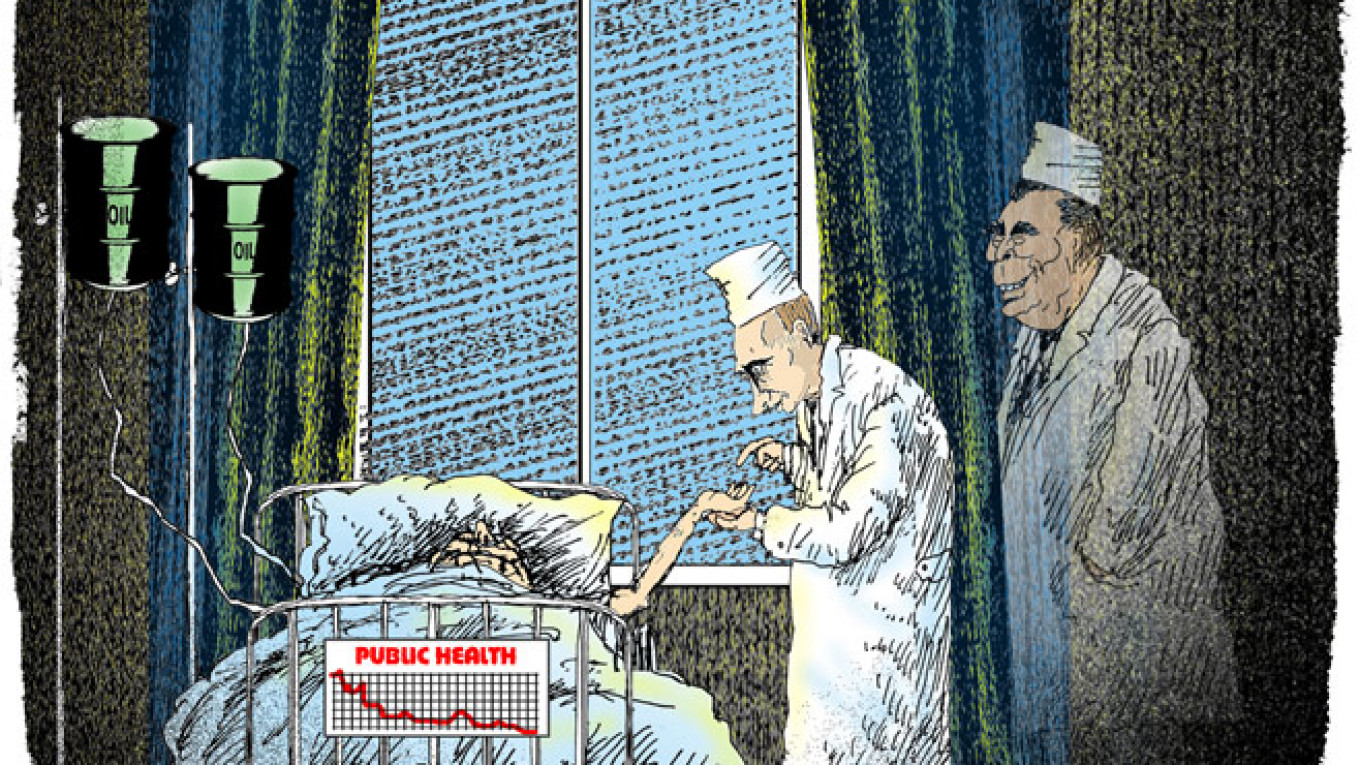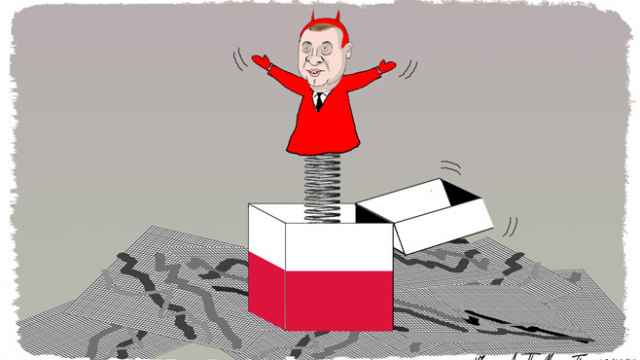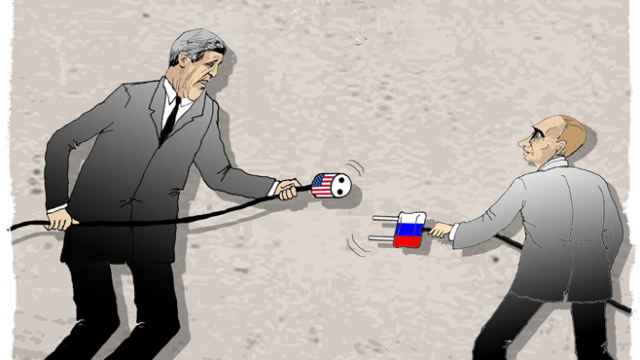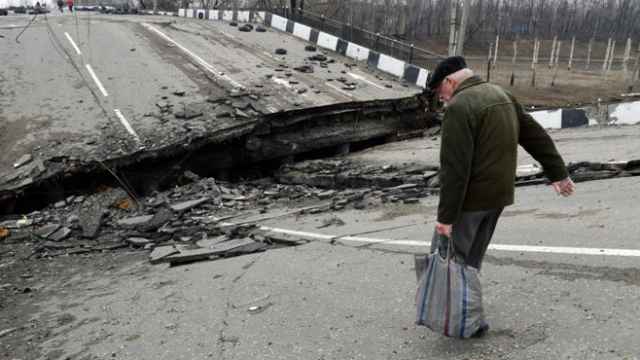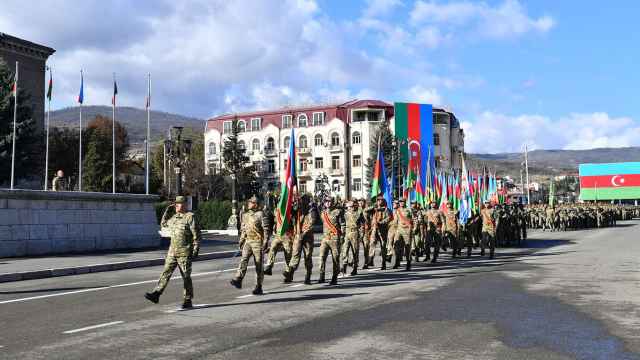Ever since I first started to study Russia, I've read that is it on the verge of "stagnation." Virtually every other week, even as Russia's economy was rocketing along at 7 percent annual growth, The Economist, The Guardian, or The Wall Street Journal would write an aggrieved editorial bemoaning the country's descent into a mire of corruption and inefficiency and the weakening of vital reforms passed during the 1990s.
Now stagnation is, in every country, an extremely negative term. But Russia is the only country that I know of where "stagnation" refers not just to some kind of vague abstract malaise, but to a very specific historical context: the late Brezhnev years.
Russia's period of stagnation wasn't just an economic problem — although the Soviet economy did begin to noticeably slow down — it was an all-encompassing sense of political, social, and moral decay. The Soviet state had always been brutal, but during the Khrushchev years from 1953 to 1964, there was a brief moment where it appeared that a better future was, if not imminent, then at least possible.
It's easy to exaggerate the impact of Khrushchev's Thaw — the Khrushchev years also saw a renewed and quite brutal crackdown on religious expression, and the mechanisms of state control remained completely unreformed — but the Brezhnev years saw the end of any illusions about progress via the system. The party was on top, it wasn't going anywhere, and it was increasingly disinterested in justifying its control through anything other than force and inertia.
But what has always fascinated me about the Brezhnev stagnation was that, even though it had a moral and cultural component, it manifested itself in very concrete, measurable ways. This is particularly true when it comes to demography.
Under Brezhnev, the Soviet Union experienced deterioration in an enormous range of social indicators. The number of alcohol poisonings began to slowly increase. The infant mortality rate began to creep upwards. Life expectancy started to tick downwards. Death rates from a host of diseases — particularly cancer and heart disease — began a relentless march upwards.
The situation got so bad that the Soviet authorities, who despite their incompetence and corruption were able to recognize failure when they saw it, resorted to classifying demographic data. That's right: the government was so humiliated that it simply banned the publication of the offending figures.
In order to calculate basic data points, Western researchers were forced to consult a bewildering array of specialized medical journals, painstakingly assembling data in much the same way a jigsaw puzzle is put together.
From a comparative perspective, the Brezhnev-era trends were unprecedented for a modern country. Even in the worst years of 1970's "stagflation," Western countries continued to achieve modest annual improvements in public health. For a country to suddenly start marching in reverse, as the Soviet Union did under Brezhnev, bordered on the inexplicable.
And this is why, throughout most President Vladimir Putin's leadership, I found the constant exclamations about "stagnation" to be so tiresome: they just weren't being reflected in any of the places that you would expect them to be. When you looked at the data, regardless of what you wanted to believe, it simply was not true that public health was deteriorating. In fact, public health measures were improving rapidly.
Over the past few years Russia actually reached a new record high average life expectancy. The death rate from alcohol poisoning, although still much higher than in any Western country, was falling by almost 10 percent a year, and in 2013 hit the lowest level on record. Russia was even starting to make modest progress in confronting its out-of-control epidemic of cardiovascular disease.
But nothing is set in stone. Recent data suggest that the improvements in public health which have broadly characterized the past 15 years of Russian history are now coming to an end. Throughout the first six months of 2015, the overall mortality rate has increased by about 2.3 percent.
From 2013-2014, state statistics service Rosstat data indicate that the death rate from alcohol poisoning shot up by almost 6 percent (though this figure is likely complicated by the recent inclusion of Crimea and Sevastopol) while in the first half of 2015 it is up by a further 1.5 percent.
The actual levels of mortality are still much better than at any other point in recent history, and vastly better than the 1990s, but for the first time since Putin came to power, the overall demographic trend is not of improvement but of decline.
Does that mean that Russia is fated to reprise the 1970s? I don't know. It is entirely possible that the data from 2014 and 2015 reflect unique one-off circumstances (the annexation of Crimea, the crisis in Ukraine) rather than genuine long-term trends.
But in Russia "stagnation" isn't just a state of mind: based on historical experience it is a condition that is easily identifiable via public health statistics. And for the first time in a long time, those statistics are suggesting that, on average, things are getting worse, not better.
Mark Adomanis is an MA/MBA candidate at the University of Pennsylvania's Lauder Institute.
A Message from The Moscow Times:
Dear readers,
We are facing unprecedented challenges. Russia's Prosecutor General's Office has designated The Moscow Times as an "undesirable" organization, criminalizing our work and putting our staff at risk of prosecution. This follows our earlier unjust labeling as a "foreign agent."
These actions are direct attempts to silence independent journalism in Russia. The authorities claim our work "discredits the decisions of the Russian leadership." We see things differently: we strive to provide accurate, unbiased reporting on Russia.
We, the journalists of The Moscow Times, refuse to be silenced. But to continue our work, we need your help.
Your support, no matter how small, makes a world of difference. If you can, please support us monthly starting from just $2. It's quick to set up, and every contribution makes a significant impact.
By supporting The Moscow Times, you're defending open, independent journalism in the face of repression. Thank you for standing with us.
Remind me later.


